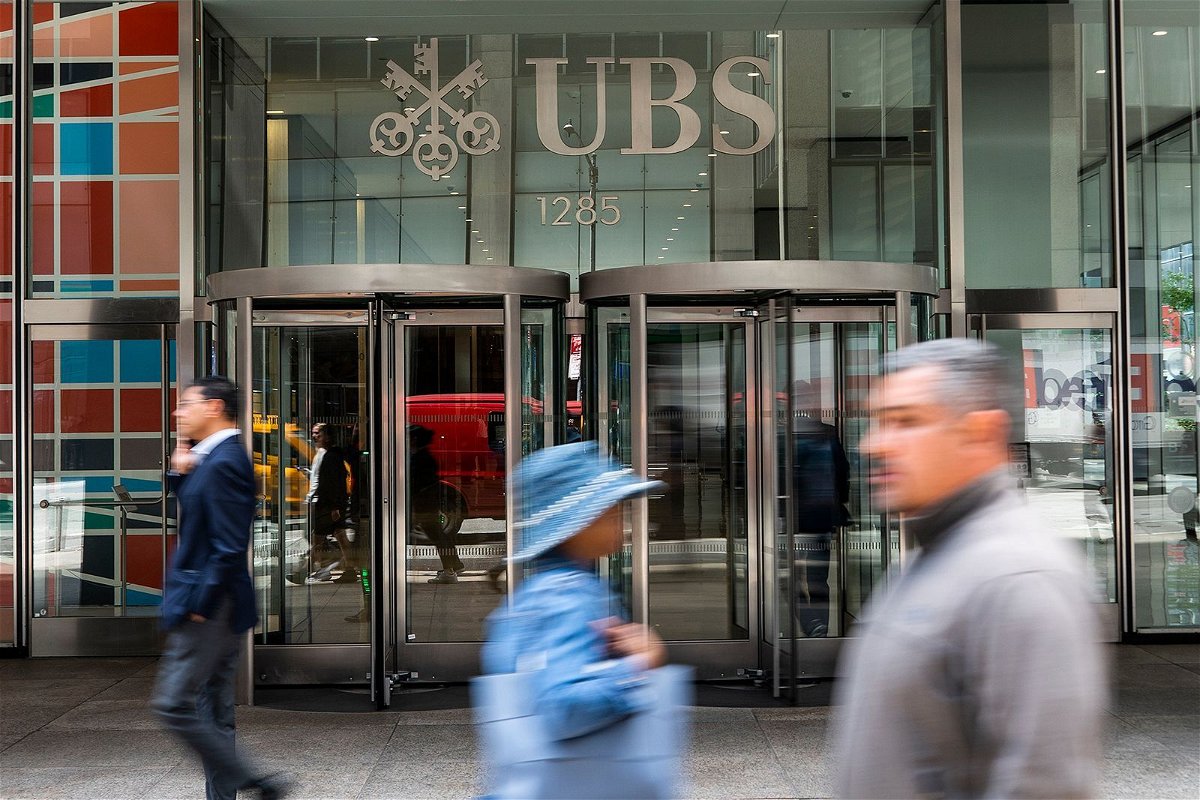UBS completes Credit Suisse takeover. Here’s what it means

People walk in front of the UBS building in Manhattan
By Hanna Ziady, CNN
London (CNN) — UBS has finalized its emergency takeover of fallen rival Credit Suisse, creating a giant Swiss bank with nearly $1.7 trillion in assets in the biggest banking tie-up since the 2008 global financial crisis.
The legal closure of the acquisition “brings clarity and stability for the two banks,” Switzerland’s financial regulator FINMA said in a statement Monday. “FINMA welcomes UBS’s strategic focus, which foresees a rapid reduction of risk in investment banking.”
UBS (UBS) agreed on March 19 to buy Credit Suisse (CS) for the bargain price of 3 billion Swiss francs ($3.25 billion) in a rescue orchestrated by Swiss authorities to avert a banking sector meltdown. The government has said that allowing Credit Suisse (CS) — one of the world’s 30 most important banks — to fail would probably have triggered an international financial crisis.
“It’s the start of a new chapter — for UBS and the global financial industry,” UBS CEO Sergio Ermotti and the lender’s chairman Colm Kelleher said in an open letter published in the Financial Times and shared with CNN.
Fully integrating two global banks is expected to take more than three years and poses huge risks to UBS, even as the deal has boosted the bank’s assets under management to $5 trillion overnight.
The combination also ends Credit Suisse’s 167-year history, dealing a blow to Switzerland’s reputation as a stable global financial center and leaving staff at both firms facing huge uncertainty.
UBS has already said it will cut jobs to save billions of dollars in costs, although it has not provided details on the extent of the layoffs. In Switzerland alone, the two banks collectively employ 37,000 people, about 18% of the financial sector’s workforce. In total, they have 120,000 employees globally.
The two banks’ assets are worth twice as much as the country’s annual output, while local deposits in the new entity are equal to 45% of Switzerland’s gross domestic product — an enormous amount even for a nation with healthy public finances and low levels of debt.
Swiss taxpayers are on the hook for up to 9 billion Swiss francs ($10 billion) of losses that UBS may incur from certain Credit Suisse assets, over and above losses of 5 billion francs ($5.5 billion) that UBS has agreed to bear itself.
UBS has already indicated it sees tens of billions of dollars of potential costs and benefits from the transaction, highlighting the scale and complexity of the takeover.
For a start, the bank could face litigation from some Credit Suisse bondholders, who were wiped out ahead of shareholders, upending the traditional hierarchy of losses in a bank failure. Investors have already sued the Swiss financial regulator over its decision to impose those losses on them, Reuters has reported.
In their letter, Ermotti and Kelleher said there would be both “challenges” and “great opportunity” in combining the two firms. “Many are counting on us to make this acquisition work. And we have no doubt that we will,” they wrote.
Ermotti was brought back into the top job at UBS to oversee the tie-up after stepping down in 2020, offering further proof of the risks involved. Alongside cutting thousands of jobs, Ermotti will need to downsize Credit Suisse’s investment bank and align it with a more conservative risk culture.
Kelleher previously said all Credit Suisse employees would be put through a “culture filter, to make sure we don’t import something into our ecosystem that causes culture issues.”
UBS’s smaller rival has been plagued by scandals and compliance failures in recent years that wiped out its profit and cost several top managers their jobs.
Credit Suisse bled customer deposits worth 67 billion francs ($74.3 billion) in the first three months of the year, adding to massive withdrawals at the end of last year. The failure of Silicon Valley Bank and Signature Bank in the United States in March drove the fresh wave of asset flight as investors and clients sought safer havens.
The-CNN-Wire
™ & © 2023 Cable News Network, Inc., a Warner Bros. Discovery Company. All rights reserved.



